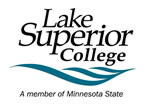Part 1: Purpose. To promote economic, ethical, environmental, and social considerations in all purchasing decisions while maintaining standards of cost and value in all purchases made for institutional use.
Part 2: Objective. Lake Superior College, where possible, will procure environmentally preferable products by considering short and long term implementation and costs, life cycle costs, and maintenance costs. This policy does not require changes in typical purchasing practice, but serves as a guide to preferable purchasing criteria.
Part 3: Definitions
Subpart A: Environmentally Preferable Products. The U.S. Environmental Protection Agency (EPA) defines environmentally preferable products as products or services that have a lesser or reduced effect on human health and the environment when compared with competing products or services that serve the same purpose. This comparison applies to raw materials, manufacturing, packaging, distribution, use, reuse, operation, maintenance, and disposal.
Subpart B: Environmentally Preferable
Purchasing. Environmentally Preferable Purchasing (EPP) seeks the overall best value, taking into account price, competitiveness, availability, regulatory requirements, performance, and environmental impact.
Subpart C: Life Cycle Cost. Life cycle cost takes into account the sum of all costs of a product including but not limited to: ecological cost of development, initial purchase price, installation, service, general operation, maintenance, potential upgrades, disposal, and potential residual value. The actual life cycle cost of items likely will not be directly quantifiable, but these factors should be considered in purchasing decisions when feasible.
Part 4: Tracking Activity. Tracking annual environmentally preferable purchases will utilize the Minnesota State purchasing system. The Sustainability Council, with support from the Business Services Office, will develop a method to identify environmentally preferable purchases.
Part 5: Evaluation. The Sustainability Council, utilizing information typically collected by the Minnesota State purchasing system, will complete an annual EPP report. Data collected will be analyzed to identify trends and opportunities for improvements.
Part 6: Reference Statute
- Minnesota Statute 115A, Waste Management
- Minnesota Statute 16C.0725, Purchase of Recycled, Repairable, & Durable Materials
- Minnesota Statute 16C.073, Purchase and Use of Paper Stock; Printing
- Minnesota Statute 115D, Toxic Pollution Prevention
- Minnesota Statute 116D, Environmental Policy
- Executive Order 99-4
Date Implementation: August 6, 2015


